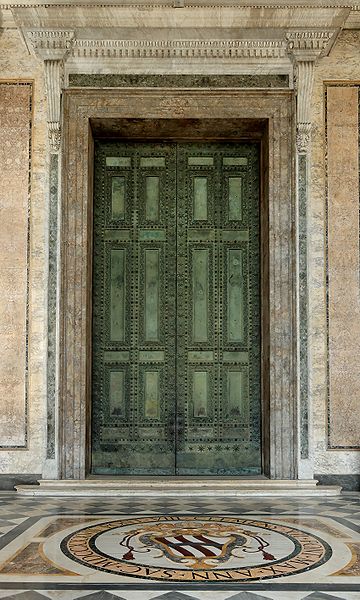Senate (Nova Roma)
·The People's Assembly·
Comitia Curiata
Comitia Centuriata
Comitia Populi Tributa
Comitia Plebis Tributa
The Senate
Collegium Pontificum
Collegium Augurum
· Judiciary court · Administrative court · Constitutional court ·
The Senate of Nova Roma is a council where a select few citizens, mostly former or current magistrates, can discuss the state of the Republic and issue statements on what course of action they perceive most beneficial. These may be advisory or decisive in nature, the latter mostly in regards to appointments. It is said by Polybian theorists to represent the element of oligarchy in the Roman political equilibrium.
Contents |
Senators (album senatorium)
The senators and their status
Current consuls, praetors, censors and appointed senators are members of the Nova Roman Senate. Senators are appointed by the censors. The list of senators is regularly revised by the censors, but senators removed either by nota or under the terms of the lex Popillia senatoria are removed from the list until the nota is removed and they are returned to the Senate by the Censors as a senator.
Present holders of higher magistracies who are not senators are entitled to attend and post during meetings of the Senate (the ius sententiae) by virtue of their office. Such non-senator holders of these offices may not vote in the Senate.
Tribunes of the plebs are entitled to attend the sessions of the Senate but not vote, unless they are also a senator.
The decisions appointing new senators or removing existing senators
Such appointments or removals are made by both censors after confirmation by vote of the Senate on any of their proposed changes.
The current album senatorium
The current senators are in order of senatorial rank :
| Senatores censorii: | ||
| 1. Fl. Vedius Germanicus | ||
| 2. P. Annaeus Constantinus Placidus | ||
| 3. Sex. Lucilius Tutor | ||
| 4. Q. Arrius Nauta, decemvir stlitibus iudicandis | ||
| Senatores consulares: | ||
| 5. M. Aurelius Cotta Iovius, censor | ||
| 6. T. Domitius Draco | ||
| 7. C. Cornelius Barosus | ||
| 8. C. Petronius Stephanus Turpilianus, censor | ||
| Senatores praetorii: | ||
| 9. C. Petronius Dexter | ||
| 10. M. Hortensia Maior Fabiana Faustina | ||
| 11. D. Aurelius Ingeniarius, praetor | ||
| 12. C. Flavius Constantinus Aeneas Stilicho, consul | ||
| Senatores aedilicii: | ||
| 13. A. Vitellius Celsus | ||
| 14. A. Iulius Paterculus | ||
| 15. M. Caecilius Metellus Tocaiensis | ||
| 16. Cn. Cornelius Lentulus, triumvir monetalis | ||
| Magistratus et privati cum iure sententiae dicendae: | ||
|---|---|---|
| 17. P. Porcius Licinus, vir praetorius | ||
| 18. P. Aurelius Barbatus, consul, vir praetorius | ||
| 19. Ti. Iulius Nerva, praetor, vir aedilicius |
Organization of the senatorial work
The Senate takes its senatus consulta in plenary sessions. In order to prepare them, it may work in committees. They are ordinarily several sessions a year. Nevertheless, the sessions depend on their convocation by a presiding magistrate.
See the Senate rules
Senate plenary sessions
The Sessions of the Senate are reported here, with every senatus consulta discussed, passed or rejected.
Senate standing committees
Cn. Caesare C. Tullio cos. ‡ MMDCCLXV a.u.c., the Senate standing committees are as per section II of this Senatus consultum
- The Senate Civic Education Committee
- The Senate Communications Committee
- The Senate Finance Committee
- The Senate Policy Committee
- The Senate Public Enterprise Committee
Senate working committees
Roman senate: the Senate in antiquity.
